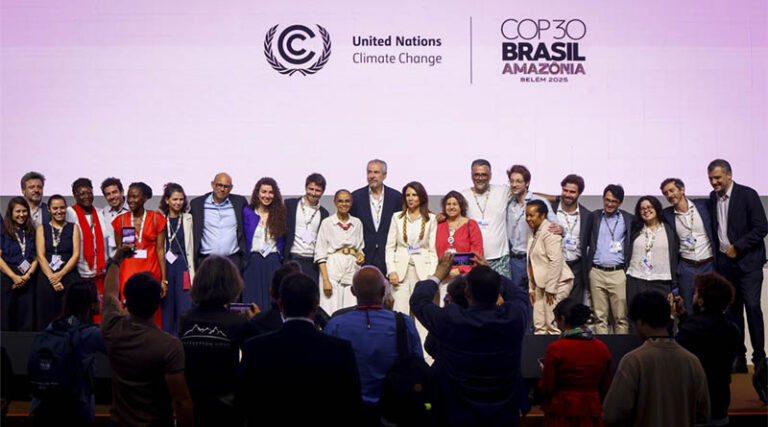
COP30 Opens New Global Debate on Fossil Fuel Future
25 November 2025, Belém: COP30 concluded with a series of decisions aimed at shifting global climate action into a stronger implementation phase. The conference took place during a period seen as one of the most complex for the Paris Agreement since 2015, with significant discussions on the future of fossil fuels.
Brazil Places Fossil Fuel Transition at the Centre of COP30
A key development at COP30 was Brazil’s move to place the future of fossil fuels on the global agenda. More than 80 countries supported explicit language on fossil fuel reduction, while more than 80 opposed any reference. With no final agreement possible, Brazil announced two processes that will move forward regardless of the divide. One process will focus on outlining a transition toward a fossil fuel-free global economy. Another will focus on developing a Forest and Climate Roadmap to stop and reverse deforestation.
These announcements leave open questions on whether countries will engage fully with the Brazilian proposals and how this debate will shape the next stages of the Paris Agreement.
Paris Agreement Strengthened Through New Decisions
Negotiators adopted decisions covering emission reduction, adaptation, climate finance, technology cooperation, and capacity support for developing countries. The decisions expand participation rights for women, Indigenous Peoples and Afro-descendant communities. Cities, states, and local governments were formally recognized as part of global climate action processes.
The location of COP30 in the Amazon region increased attention on forests, oceans and the link between climate and nature. Discussions around the Tropical Forests Forever Facility drew notice as countries examined ways to scale up measures related to tropical forest protection.
Global “Mutirão” Call Marks Shift Toward Implementation
A central outcome of COP30 was the collective call by nearly 200 countries for a global “mutirão,” or unified effort, to address climate change. This move signals a shift from decades of negotiation-driven processes to an implementation-driven phase of the Paris Agreement.
Countries agreed to launch the Global Implementation Accelerator, designed to prioritise climate actions that can be scaled quickly. Delegates also agreed to increase adaptation finance, establish the Belém Mechanism for a just transition, begin new discussions on the trade–climate interface, and start a two-year programme on climate finance predictability. The Technology Implementation Program and the new Gender and Climate Action Plan were also approved. Subnational governments were formally included as actors in climate action.
Next Steps and Open Questions
The outcomes of COP30 now move to the implementation stage, with attention shifting to how countries will operationalise the measures adopted in Belém. Key questions remain on whether adaptation finance will increase as planned, how the Implementation Accelerator will function in practice, and whether Brazil’s fossil fuel and forest roadmaps will gain broad political support.
Also Read: Punjab’s Water Crisis: Experts Say Hybrid Seeds Are the Only Sustainable Solution
📢 If You’re in Agriculture, Make Sure the Right People Hear Your Story.
From product launches to strategic announcements, Global Agriculture offers unmatched visibility across international agri-business markets. Connect with us at pr@global-agriculture.com to explore editorial and advertising opportunities that reach the right audience, worldwide.






